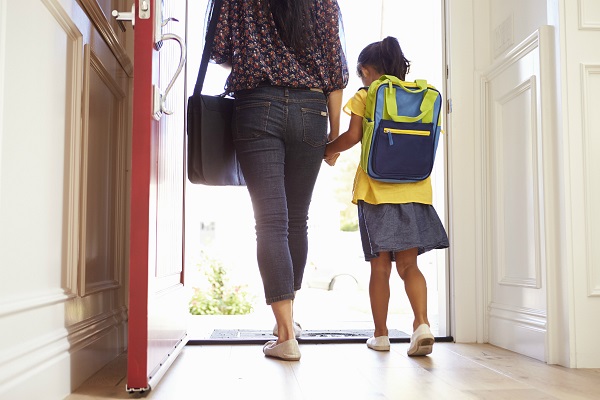While stories about parents’ anger over pandemic-related school closures, mitigation protocols and shifting curriculum dominated the news in 2021, the latest data suggests families are less concerned now than they were earlier in the pandemic.
Researchers from the USC Rossier School of Education and USC Dornsife Center for Economic and Social Research analyzed the latest results from an ongoing series of nationally representative surveys of households with at least one preK-12 child and/or at least one postsecondary student.
In fall 2021, parents were asked about their level of satisfaction with school efforts to meet their children’s academic, mental health and social needs. Across all eight domains, between 82-91 percent of parents reported being satisfied, while the percent of “very satisfied” parents was generally between 35-45 percent. The percent of satisfied parents was at least 75 percent across subgroups, including by race/ethnicity, household income, parental education level, region of the country, urbanicity, partisanship and student grade levels.
Additionally, 79 percent of Democrats and 80 percent of Republicans surveyed reported being satisfied or very satisfied with school efforts to adjust instruction to help children catch up from any learning losses, indicating that much of the partisan bitterness witnessed during school board meetings nationwide is more representative of a vocal minority than of all parents.
“The big picture? With the return to in-person learning, parents’ satisfaction with their children’s schools has rebounded, and the proportion of parents who remain concerned about their kids is dwindling,” researchers wrote. “That said, our results do suggest some racial differences in concerns and satisfaction, with Black parents more concerned about their students’ academic progress than any other group. Given recent evidence about the disproportionate academic effects of the pandemic across student groups, these concerns are well founded and merit strong prioritization.”
Where concerns remain
Researchers surveyed parents four times during the pandemic about their concerns for their children: in October 2020, when 29 percent had returned fully to in-person learning; in April/May 2021, when 50 percent were in-person; in June 2021, when 79 percent were on summer break; and in October 2021, when 93 percent were in person. Across the eight domains, concerns in October 2021 were significantly lower than earlier time periods among all subgroups, with researchers positing that the relative normalcy of in-person learning this year may be driving reduced parental concerns.
Despite similar patterns of diminishing concern over time, greater proportions of Black parents continue to express concern about their children’s progress in science (25 percent) and English and language arts (26 percent) relative to white parents (13 percent and 15 percent respectively). Additionally, more Black parents reported concern about their children’s psychological (27 percent) and social-emotional (25 percent) well-being relative to white parents (16 percent and 15 percent respectively), and more Black parents than white parents were concerned about their children missing out on extracurricular activities (23 percent compared to 11 percent).
“We observed this trend even though the proportion of Black parents reporting their child was attending fully in person in fall 2021 (89 percent) was far higher than in spring 2021 (36 percent),” according to researchers. “If concerns were purely driven by whether a child was attending in person, concerns among Black parents should have converged with those of parents of other races/ethnicities. This lack of convergence indicates Black parents remain more concerned about their children’s well-being.”





